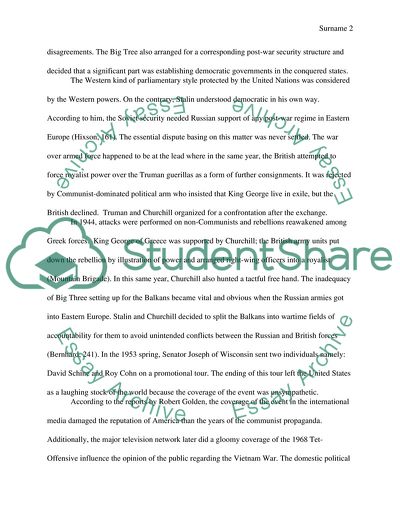Cite this document
(1950-1960s Cold War Propaganda Impact and McCarthyism Essay Example | Topics and Well Written Essays - 1750 words, n.d.)
1950-1960s Cold War Propaganda Impact and McCarthyism Essay Example | Topics and Well Written Essays - 1750 words. https://studentshare.org/history/1826928-1950-1960s-cold-war-propaganda-impact-and-mccarthyism
1950-1960s Cold War Propaganda Impact and McCarthyism Essay Example | Topics and Well Written Essays - 1750 words. https://studentshare.org/history/1826928-1950-1960s-cold-war-propaganda-impact-and-mccarthyism
(1950-1960s Cold War Propaganda Impact and McCarthyism Essay Example | Topics and Well Written Essays - 1750 Words)
1950-1960s Cold War Propaganda Impact and McCarthyism Essay Example | Topics and Well Written Essays - 1750 Words. https://studentshare.org/history/1826928-1950-1960s-cold-war-propaganda-impact-and-mccarthyism.
1950-1960s Cold War Propaganda Impact and McCarthyism Essay Example | Topics and Well Written Essays - 1750 Words. https://studentshare.org/history/1826928-1950-1960s-cold-war-propaganda-impact-and-mccarthyism.
“1950-1960s Cold War Propaganda Impact and McCarthyism Essay Example | Topics and Well Written Essays - 1750 Words”. https://studentshare.org/history/1826928-1950-1960s-cold-war-propaganda-impact-and-mccarthyism.


